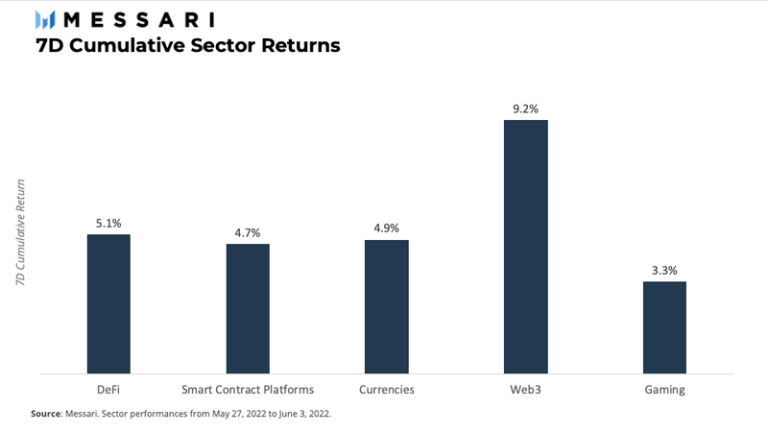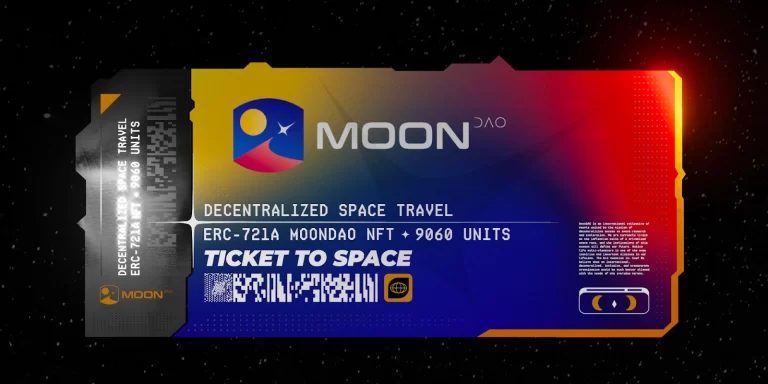
RADAR officially launching on BNB Chain
DappRadar, the world’s dapp store, has partnered with ApeSwap, a leading decentralized exchange on BNB Chain, Polygon, and Ethereum. The collaboration will bring permanent, protocol-owned liquidity for the native RADAR token to BNB Chain, while tapping into ApeSwap’s innovative sustainable liquidity mining program.
After launching its Cross-Chain Token Staking last week, DappRadar now makes bigger steps into the BNB Chain ecosystem. Users who provide liquidity and then purchase a RADAR Jungle Bill on ApeSwap, will receive very juicy RADAR token rewards.
DappRadar is the first project to go through ApeSwap’s sustainable liquidity mining program. This means that RADAR has become the first project on the BNB Chain to be permanently backed by protocol-owned liquidity.
When users provide liquidity in the BNB-RADAR pool, they can use their LP tokens to purchase a RADAR Jungle Bill. Each Treasury Bill is a unique NFT that represents the purchased tokens, which vest for 14 days. You could say it’s a yield-generating NFT.
You, as a RADAR token holder, provide liquidity and then purchase a RADAR Jungle Bill through ApeSwap from DappRadar. In return, you will receive your RADAR tokens. This benefits DappRadar because we aren’t endlessly trading our token to incentivize liquidity, while also putting our token back in the hands of our community.. At the same time, you will get a serious discount on your purchase.
ApeSwap x DappRadar Treasury Bill roadmap
Users can already stake their RADAR on DappRadar and claim their token rewards on BNB Chain. But with the help of ApeSwap we will bring more RADAR earning options to the ecosystem. We will do this in the following steps:
- July 6 at 22:00 UTC: ApeSwap will open a BANANA Yield Farm where users can stake RADAR-BNB LPs and earn BANANA as a reward.
- July 6 at 22:00 UTC: ApeSwap will open a Staking Pool where users can stake GNANA and receive RADAR as a reward.
- July 8 at 18:00 UTC: ApeSwap will launch RADAR Jungle Bills where users can sell their RADAR-BNB LPs for vesting RADAR.
How to buy the RADAR Jungle Bill on ApeSwap?
- On ApeSwap, you can find RADAR tokens, which you can bundle with BNB to provide liquidity to the RADAR-BNB liquidity pool. You can do that on ApeSwap here. Each of these actions requires a small gas fee paid in BNB on the BNB Chain.
- Then, you will receive ApeSwap’s LP tokens in your wallet, representing the value you added to the liquidity pool.
- You can sell RADAR-BNB LP tokens to purchase a RADAR Jungle Bill NFT by going to the ApeSwap website > Raise > Treasury Bills.
- Click the Buy button for the RADAR-BNB Jungle Bill. The page shows the discount percentage buyers get on their RADAR token purchase and the vesting time. The vesting time will be 30 days for the RADAR Jungle Bills. Again, this purchase requires a small gas fee paid in BNB.
- Once you own a Treasury Bill NFT, you will find the Claim and View buttons on the corresponding page. You can claim any vested tokens from an individual bill using the Claim button, or claim all your tokens from various Bills using the Claim All button.
Visit ApeSwap and get started.
Why does the discount fluctuate?
There are various factors that influence the price of a Treasury Bill. Each bill comes with a specific discount set by ApeSwap. In addition, the price of the LP tokens (RADAR-BNB) and the reward token (RADAR) play an important role. Demand and the last time since the previous bill was purchased also play a role in the pricing.
When the price of the LP tokens and reward token remain the same, ApeSwap will increase the discount to make the purchase of the Treasury Bill more attractive. However, in the crypto space prices are always moving.
If the price of RADAR increases, the price of the input LP tokens will decrease or stay the same. That would also mean that the discount increases. If the price of RADAR decreases, the price of the LP tokens can increase or remain the same. This would lower the discount offered by the Treasury Bill.





